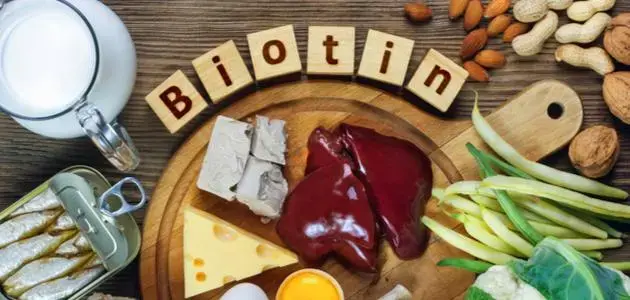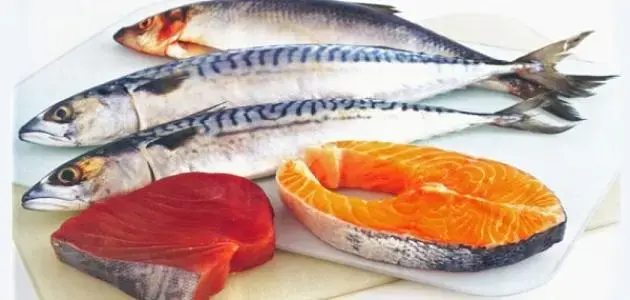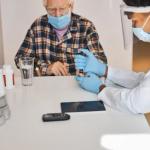Likely Effective
Treating or preventing biotin deficiency: Biotin deficiency is pretty rare, but when it happens, it can cause symptoms like hair loss, rash around the eyes, nose, and mouth, cracked corners of the mouth, mouth inflammation with reddish-purple coloring, dry eyes, loss of appetite, trouble sleeping, depression, hallucinations, tingling or numbness in the hands and feet, weak immune system, and higher risk of infections.
Insufficient Evidence
Reducing hair loss: According to the NIH, the scientific proof that biotin helps reduce hair loss is limited. People with low biotin levels do tend to have hair loss, so taking biotin supplements might help improve hair thickness and reduce shedding. A 2015 study on women with thinning hair found that using a biotin-containing product twice a day for 90 days helped promote hair growth and reduced hair loss. But more research is still needed.
Improving basal ganglia disease: This rare genetic disorder affects the part of the nervous system that controls movement, causing muscle spasms, stiffness, and weakness. Some early research shows that taking biotin with vitamin B1 (thiamine) can reduce these symptoms. One small study tracked 18 patients over 9 years and found that high doses of biotin helped ease their symptoms.
Strengthening nails: Taking biotin supplements can increase nail thickness over up to a year in people with brittle or breaking nails. A review from 2007 showed that 2.5 mg of biotin daily helped reduce nail breakage and fragility.
Helping with diabetes: Biotin alone doesn’t seem to lower blood sugar in type 2 diabetes, but when combined with chromium, it might help reduce blood sugar levels. A 2012 study on diabetic mice found that biotin with chromium increased insulin release and lowered blood sugar. Another early study suggests high doses of biotin may improve liver enzymes that help regulate blood sugar in type 1 diabetes, but more research is needed.
Reducing nerve pain from diabetes: Some early studies show that oral biotin may help reduce nerve pain in the feet of people with diabetes. It might also ease symptoms of peripheral neuropathy (nerve damage causing numbness, pain, or weakness) in diabetics and kidney patients on dialysis, though more studies are needed to confirm this.
Reducing muscle cramps related to dialysis: Muscle cramps are common during dialysis, and some early research suggests biotin supplements might help reduce these cramps in people with kidney failure.
Helping with multiple sclerosis symptoms: Some early studies found that high doses of biotin might improve symptoms like vision problems and partial paralysis in MS patients. For example, a small 2016 study showed that 300 mg of biotin daily for 3 months reduced pain, increased energy, and improved nervous system function. Another study found up to 91% improvement in mobility after taking 100-300 mg daily for 2 months to 3 years. However, a 2017 study suggested high doses might not help in the long term and could even worsen symptoms, so more research is needed.
Possibly Ineffective
Improving rash in babies: Biotin might not help with baby rash, but more research is needed to be sure.
What is Biotin?
Biotin, also known as vitamin B7 or vitamin H, is a water-soluble B-complex vitamin. Your body can’t store it, so any extra is flushed out in urine. You also can’t produce it yourself—it's made by bacteria, fungi, algae, yeast, and some plants—so you need to get it from your diet every day. Biotin acts as a coenzyme, which means it helps enzymes do their jobs. It plays a key role in breaking down fats, amino acids like leucine, and carbohydrates, and it’s involved in making glucose when your body needs it. Biotin is essential for turning food into the energy your body needs.
Food Sources of Biotin
Biotin is found in lots of protein-rich foods, so deficiency is rare. Here are some common sources:
- Yeast: 7 grams contain about 1.4 to 14 micrograms of biotin.
- Eggs: One large cooked egg has about 10 micrograms. (Raw eggs contain avidin, a protein that blocks biotin absorption, so eating raw eggs regularly can cause deficiency.)
- Cheddar cheese: 28 grams provide 0.4 to 2 micrograms.
- Organ meats like liver: 84 grams cooked have around 30.8 micrograms.
- Seafood: 85 grams of oysters or salmon contain 4-5 micrograms.
- Avocado: One whole avocado has about 2-6 micrograms.
- Cauliflower: One cup raw has 0.2 to 4 micrograms.
- Sweet potatoes: One cup has 4.8 micrograms.
- Nuts and seeds: One cup roasted almonds has 6 micrograms, sunflower seeds have about 9.6 micrograms.
- Whole wheat bread: One slice has 0.02 to 6 micrograms.
Biotin Supplements
You can find biotin supplements alone or combined with other B vitamins or multivitamins. Ideally, you should get enough biotin through a balanced diet, but supplements can help if needed. Always talk to your doctor before starting supplements, especially if you're looking to improve hair loss, brittle nails, mild depression, diabetes, or infant seborrheic dermatitis.
Biotin Needs by Age
| Age Group | Recommended Intake (mcg) |
|---|---|
| 0-6 months | 5 |
| 7-12 months | 6 |
| 1-3 years | 8 |
| 4-8 years | 12 |
| 9-13 years | 20 |
| 14-18 years | 25 |
| 19+ years | 30 |
| Pregnant women | 30 |
| Breastfeeding women | 35 |
Biotin Deficiency
Biotin deficiency is rare, especially if you eat a balanced diet. But some people might be at risk, including:
- Pregnant women: About one-third may have slight biotin deficiency even with enough intake.
- People who abuse alcohol: Alcohol interferes with absorption and leads to poor nutrition.
- People with biotinidase deficiency: A rare inherited disorder that stops the body from recycling biotin, causing severe symptoms without treatment. Treatment involves taking biotin supplements for life, usually 5-10 mg daily.
For more info on biotin deficiency and food sources, it’s always good to check trusted health articles or talk to your doctor.
Leave a comment
Your email address will not be published. Required fields are marked *















-150x150.webp)
